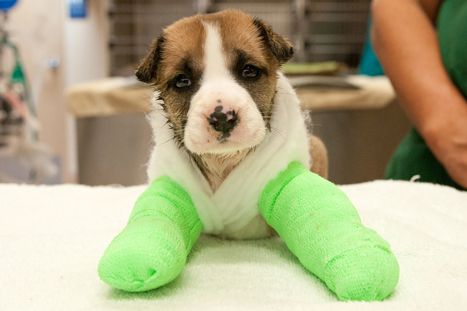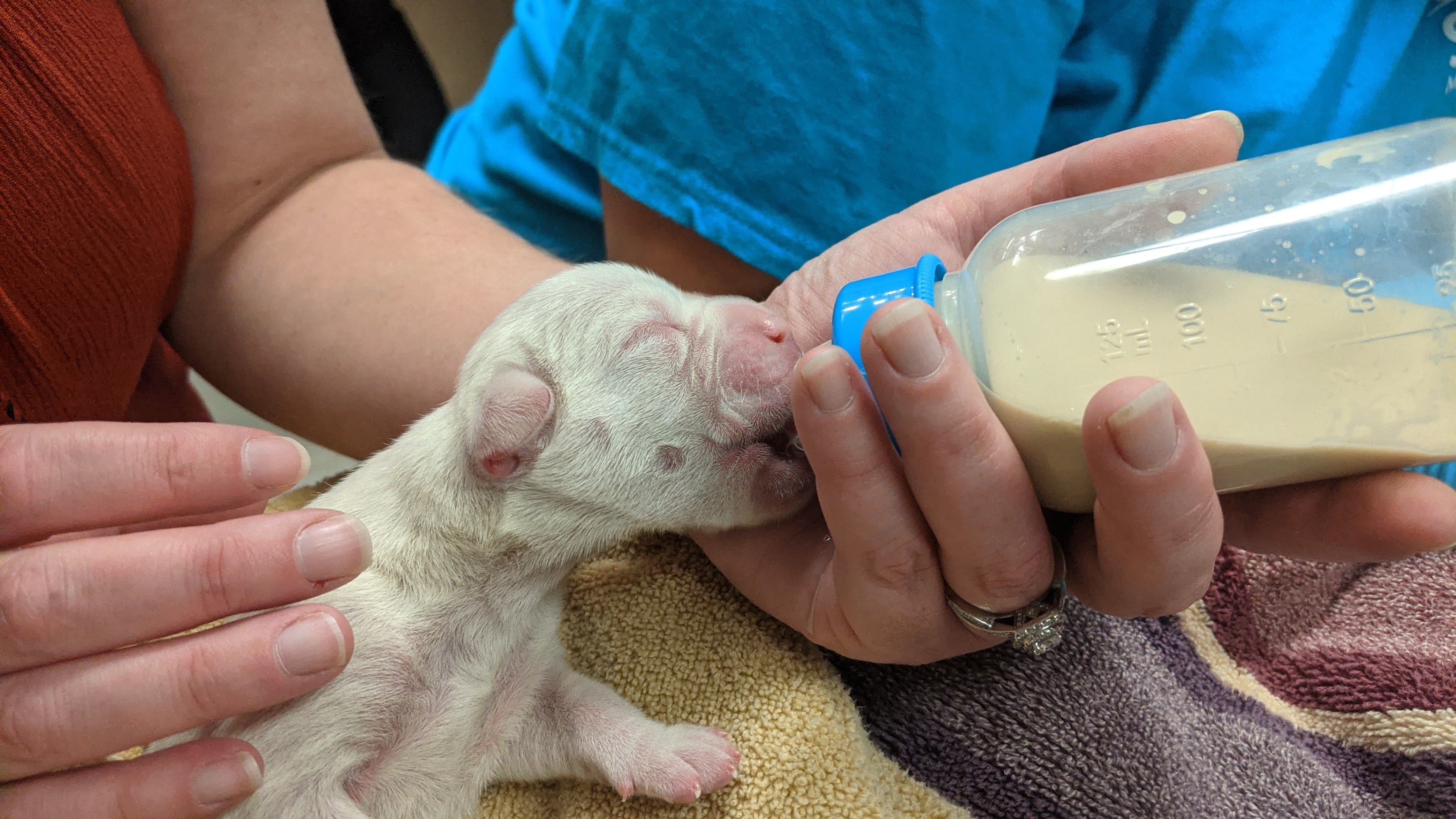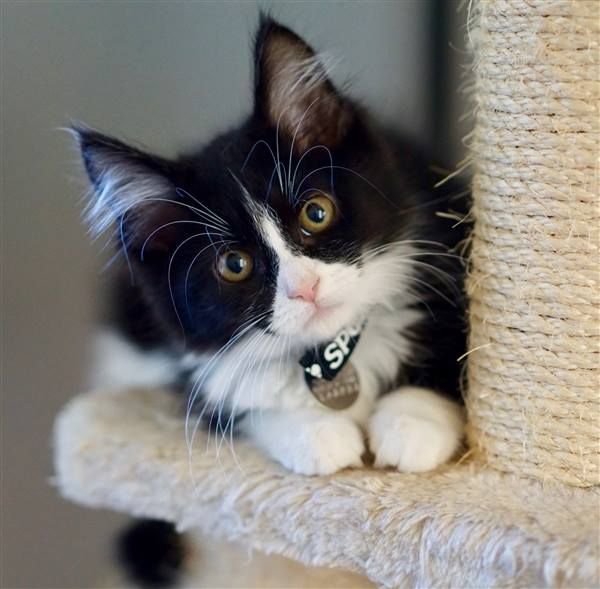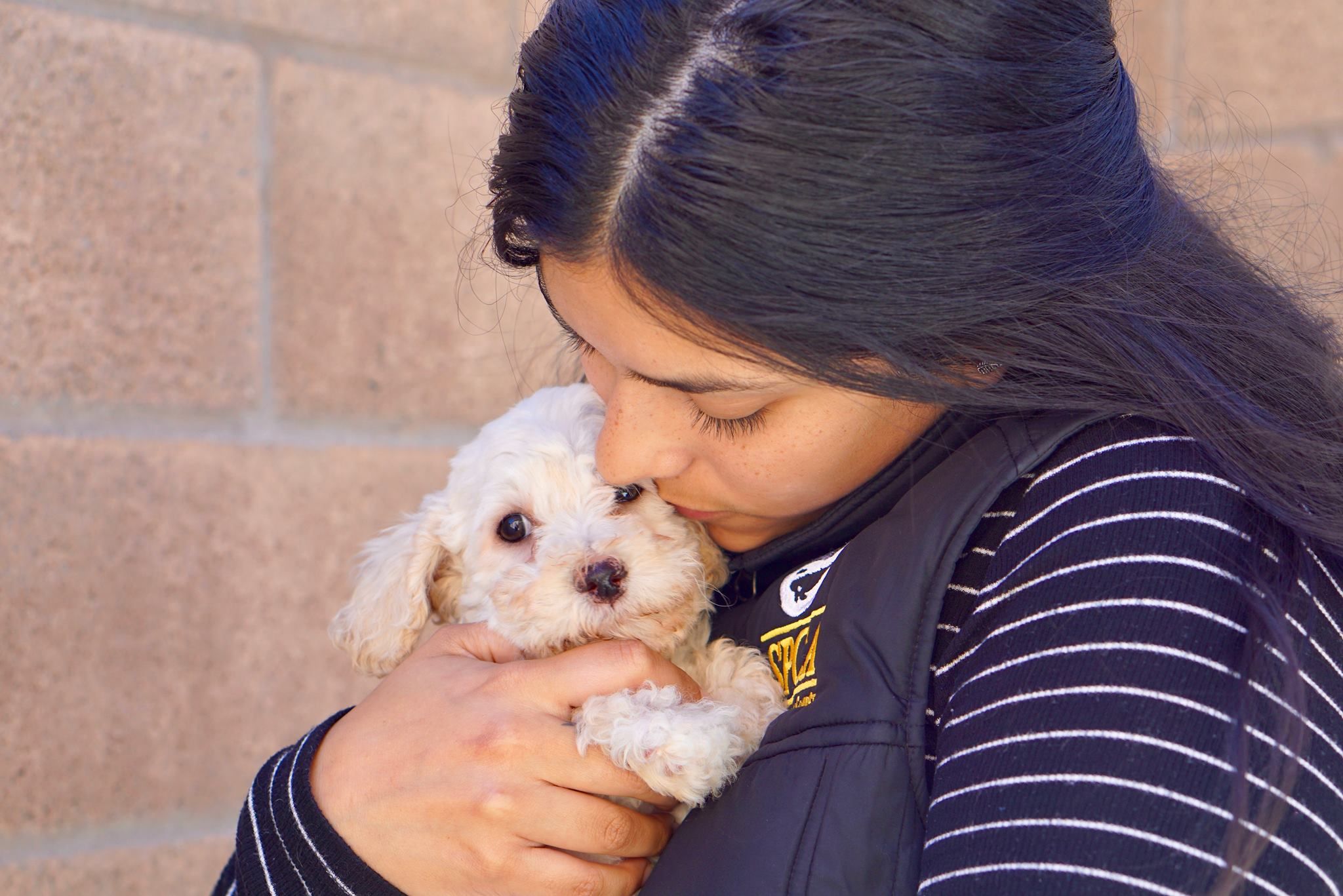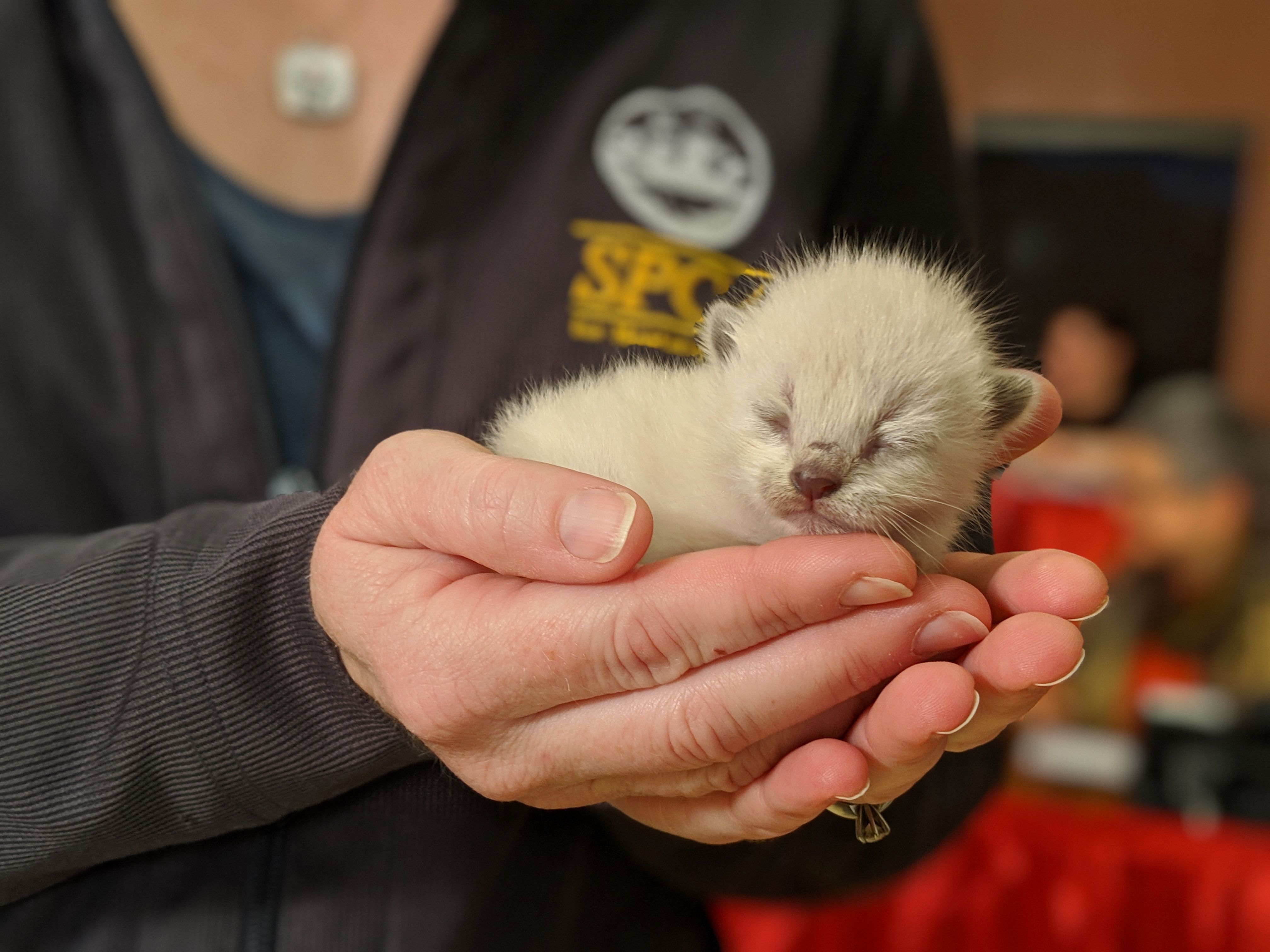Feral Cats

Thank you for helping feral cats in our community. A feral cat is an unsocialized outdoor cat who has never had any physical contact with humans and is more like a wild animal than a house pet. Most feral cats are fearful of people and are not likely to ever become socialized or enjoy living indoors. SPCA Monterey County offers multiple resources to assist with humanely reducing the number of feral cats in our community.
Free Feral Spay and Neuter for Monterey County
PLEASE NOTE: The clinic is closed for Federal Holidays and not accepting walk-in ferals on those dates.
Your SPCA Monterey County offers free spay and neuter services for feral cats in Monterey County. There are two options for feral cat caretakers:
- Walk Ins: We offer 4 walk-ins every Monday through Friday at no charge (please arrive between 7:00-7:30 am). If we are full when you arrive, and if it is a Monday-Thursday, we may be able to hold your cat overnight and perform the surgery the next day so that you do not have to trap the cat again. We will likely not be able to accommodate late arrivals, and we cannot hold ferals over the weekends.
- Appointments: If you would prefer a scheduled appointment you can make one on our website for a $25 deposit, which will be refunded to you when your cat is neutered. Please note that our appointment system will ask for your cat’s information. We understand that you likely will not know which cat you will trap. Please enter any information to the best of your knowledge. If you are unsure, please enter the cat as a female and the name as “Feral”.
Feral cat surgeries include the cat’s spay/neuter surgery, rabies vaccination, FVRCP vaccine, and ear tip. All cats will be ready for pick up that same day. All feral cats must be in a humane feral cat trap. If you need a humane cat trap to help trap a feral cat, we offer them for rent.
If you find healthy kittens, please leave them where they are; if the mother is not with her litter, she is likely close by. Mothers are the best at raising their babies - watch from afar and bring them to a shelter or rescue when they are between 6-8 weeks of age. Learn how to tell how old a kitten is and why kittens are safer with their mothers.
Trap-Neuter-Return (TNR)
We ask those trapping feral cats to please participate in our Trap-Neuter-Return (TNR) program. TNR is a program in which feral cats are humanely trapped, spayed or neutered, vaccinated, and eartipped (the universal sign that a feral cat has been part of a TNR program), and then returned to their outdoor homes. If you have a feral cat you would like to TNR, please see the information above about how to do so through our free feral spay/neuter program.
SPCA Monterey County is not able to accept healthy feral cats into our sheltering program. Instead, they will be a part of our TNR Program.
- SPCA returns only healthy feral cats to the area where they were found. Health status is a sign that the cat has been thriving in the area, and will be returned only to that area where they have resources to live.
- SPCA will not return cats who are friendly and can be adopted into indoor homes. Those cats will go into our adoptions program.
- SPCA will not return kittens who are young enough to be socialized.
- SPCA will not return feral cats who are sick and not thriving, as it would be inhumane to send them back to a place where they are suffering.
- If you come to our Animal Shelter with your feral cat, we will spay or neuter the cat at no charge, as well as provide vaccinations and ear-tip the cat so people know he or she is spayed or neutered. You will help by returning the cat to the area where he was found.
- If possible, we ask that you skip coming to our shelter and instead bring the cat directly to our Veterinary Clinic for a free surgery. We offer 4 walk-ins every Monday through Friday at no charge (please arrive between 7 am and 8 am) or if you would prefer a scheduled appointment you can make one on our website for a $25 deposit, which will be refunded to you when your cat is neutered. All cats will be ready for pick up that same day.
Frequently Asked Questions
- Q. How Does TNR Help Cats?
A. TNR keeps wild cats out of shelters. Feral cats are not socialized (or friendly) to people so they can’t live indoors. While SPCA Monterey County has a robust barn cat program, the number of feral cats coming into our shelter far outpaces the number of homes looking for barn cats. TNR stabilizes feral cat populations. Because cats are spayed and neutered, the breeding cycle stops, and no new kittens are born. TNR relieves cats of the constant stresses of mating and pregnancy. This helps cats and people co-exist peacefully. Neutering cats curbs behavior associated with mating, like roaming, yowling, or fighting. Feral cats can live healthy lives in their outdoor homes with the help of TNR programs. Hundreds of communities, shelters, and municipalities around the nation and the world support and practice TNR because they’ve seen it work firsthand. - Q. What If I Don’t Want the Cat?
A. If you do not want neighborhood cats in your yard, garden, or elsewhere, there are humane deterrents that are easy and effective. Alley Cat Allies offer this information, and more tips can be found here. A healthy feral cat often has a caregiver, or several, who provide regular food and shelter. With TNR, cats in the neighborhood will no longer mate or yowl, and fighting will be diminished. Removing cats from your neighborhood will not work. When cats are removed from an area, it causes a well-documented phenomenon called the Vacuum Effect. That’s when new cats move into the space to take advantage of resources and breed back to capacity. TNR is the only humane and effective approach to address and stabilize feral cat populations. When cats are spayed and neutered, no new kittens will be born, and the population will naturally decrease. Rest assured you are doing the most humane thing possible for this cat by returning him (spayed, neutered, and vaccinated) to his original location. You cared enough to bring him to us (or call us about him), and we thank you for your kindness and understanding that this is the best possible outcome for him to live a happy life. - Q. Why Can’t This Cat Be A Part of Your Barn Cat Program?
A. The SPCA’s robust barn cat program saves lives, however the number of feral cats coming into our shelter far outpaces the number of people asking to adopt barn cats. - Q. Why Can’t This Cat Be Adopted into a Home?
A. A feral cat is an unsocialized outdoor cat who has never had any physical contact with humans and is more like a wild animal than a house pet. Most feral cats are fearful of people and are not likely to ever become socialized or enjoy living indoors. - Q. I found young kittens, can you help?
A. If you find healthy kittens, please leave them where they are; if the mother is not with her litter, she is likely close by. Mothers are the best at raising their babies - watch from afar and bring them to a shelter or rescue when they are between 6-8 weeks of age. Learn how to tell how old a kitten is and why kittens are safer with their mothers. - Q. Can I TNR a Cat Without Coming into the Shelter?
A. Yes! This is the best possible scenario. Our Veterinary Clinic offers free surgeries for feral cats. We offer 4 walk-ins Tuesday-Thursday at no charge (please arrive between 7 and 8 am) or if you would prefer a scheduled appointment you can make one on our website for a $25 deposit, which will be refunded to you when your cat is neutered. All cats will be ready for pick up that same day. Please see the information above for more details. - Q. Do you have feral cat traps?
A. Yes, the SPCA offers feral cat trap rentals along with lots of tips on how to safely trap feral cats.






